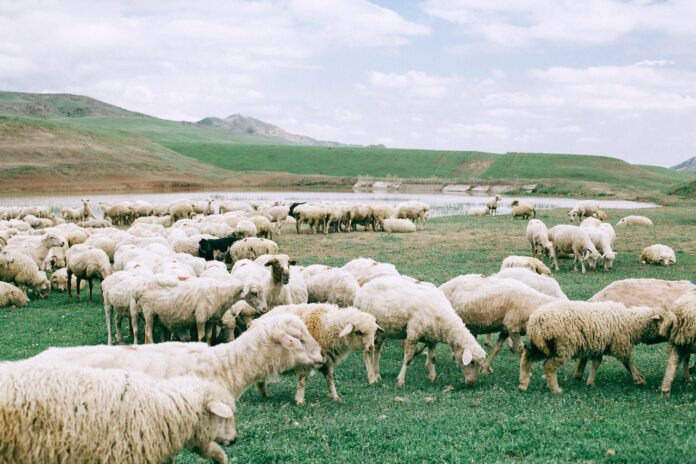If you don’t understand the fundamentals, caring for cattle might be challenging. While various animals may have varied needs, all livestock have a few fundamental necessities. To make sure your cattle survive the most challenging seasons, you must take some vital actions.
Purchase High-Quality Equipment
Purchasing the required equipment and tools that your farm animals can “wear” is one of the greatest methods to guarantee that they are shielded from the weather. For extra durability when galloping, horses, for example, may require strong horseshoes. Consider purchasing cow milking equipment that is comfy for the cattle on your farm or a cow scratcher if you have any dairy cows.
Ensure Proper Nutrition
Proper nutrition for your farm animals is a crucial place to begin. And the appropriate food will vary depending on the kind of animal you have on the farm. When raising animals, keep your goals in mind and choose the appropriate diet accordingly. Ensure that the nourishment is wholesome and provides all of the vital nutrients required for the animal to grow.
The majority of the time, owners will collaborate with nutritionists and veterinarians to create the ideal formulation for the dietary requirements of their livestock. There is no one diet that is perfect for every animal because each is different in its own way.
The dietary requirements of animals are also influenced by a number of significant factors, including age, health status (illness, pregnancy), as well as other factors. Most animals that provide animal products will depend heavily on nutrition.
Search for Symptoms of Illness
In general, instead of integrating it with other activities or chores, it is more beneficial to observe and evaluate an animal’s condition and well-being as a unique and independent task.
Pay close attention to every aspect of each animal’s appearance and behavior to look for any anomalies that might point to a potential issue. When animals show rubbing behaviors, lice can be present. Rubbing results in hair loss, which is typically more severe than the periodic shedding of the winter coat and is frequently noticed on the neck, shoulders, and rump areas.
It’s crucial to regularly examine your sheep for signs of lice if you want to catch infestations early. It is important to capture some sheep during routine group checks for a closer examination since sheep can be contaminated with lice despite showing no noticeable symptoms. If used in accordance with the instructions on the label, lice treatment for sheep should be effective at getting rid of them. In general, all newly acquired sheep must be confined until they can be proven to be lice-free or given the proper care.
Check for any indications of irregularities in the animal’s discharge and feces as well. Set up a regular procedure for making your everyday observations.
Keep the Water Clean
Make sure to change the water source for your animal every day. When your animals need it, they would have to have access to fresh, clean water. Make sure your water is not contaminated by keeping a close eye on where it is coming from.
Watering your animals frequently and properly is key. For the animals that are being milked, this is extremely important. Water satisfies them, reducing their need for food. Make sure to deliver water that isn’t cold because it helps the body regulate its own temperature.
It is preferable to slightly warm the water up in the winter. Giving animals cold water will drop their body temperature, which means they will have to burn calories to raise it.
For your animals’ well-being, they need the appropriate amount of clean water. Risks of dehydration, impaction, or colic are minimized.
Make Sure Their Health is a Your Priority
Being proactive and monitoring your animals’ health is fundamental. Your animals may suffer horribly if they become ill from a condition that could have been avoided, in addition to the high cost of vet visits.
Everyone, including animals, gets sick. Although the majority of animals do have robust immune systems, veterinary treatment is still necessary. There is almost certainly someone who can treat farm animals, even in remote regions.
Diseases are easily spread since most farm animals are in close proximity to other animals. It’s essential to vaccinate your farm animals as quickly as possible. Conditions can be passed from one animal to another in a wide variety of ways. Dogs, for instance, can contract the canine parvovirus only by sniffing an infected animal’s feces.
Animal Herding
Think about how you’ll move and manage your herds. For example, when growing sheep or cattle, you’ll need a technique to gather the animals when changing pasture or guiding them from pasture to their shelter at the end of the day. Cattle dogs and other livestock guardians can be used to herd cattle. Sheep can be safely herded by shepherd dogs.
Shelter
Finally, farm animals should always have access to shelter. Despite the common assumption that farm animals may live outside, it is simpler to care for livestock when they are gathered together and housed together. The shelter is a fantastic deterrent for predators like wolves and dingos.
In general, you don’t have to provide your farm animals with extravagantly lavish care. These creatures are accustomed to subsisting on simple foods, so there is no need to indulge. Nevertheless, it’s crucial to treat them with the respect and care they deserve.
Farm animals should be given adequate room to connect with other animals and the freedom to pursue their own interests because they are sentient creatures with feelings as well.
These tips will show you how to take the best possible care of a farm animal. Use this useful advice to make absolutely sure that each and every animal in your care is content and healthy.


